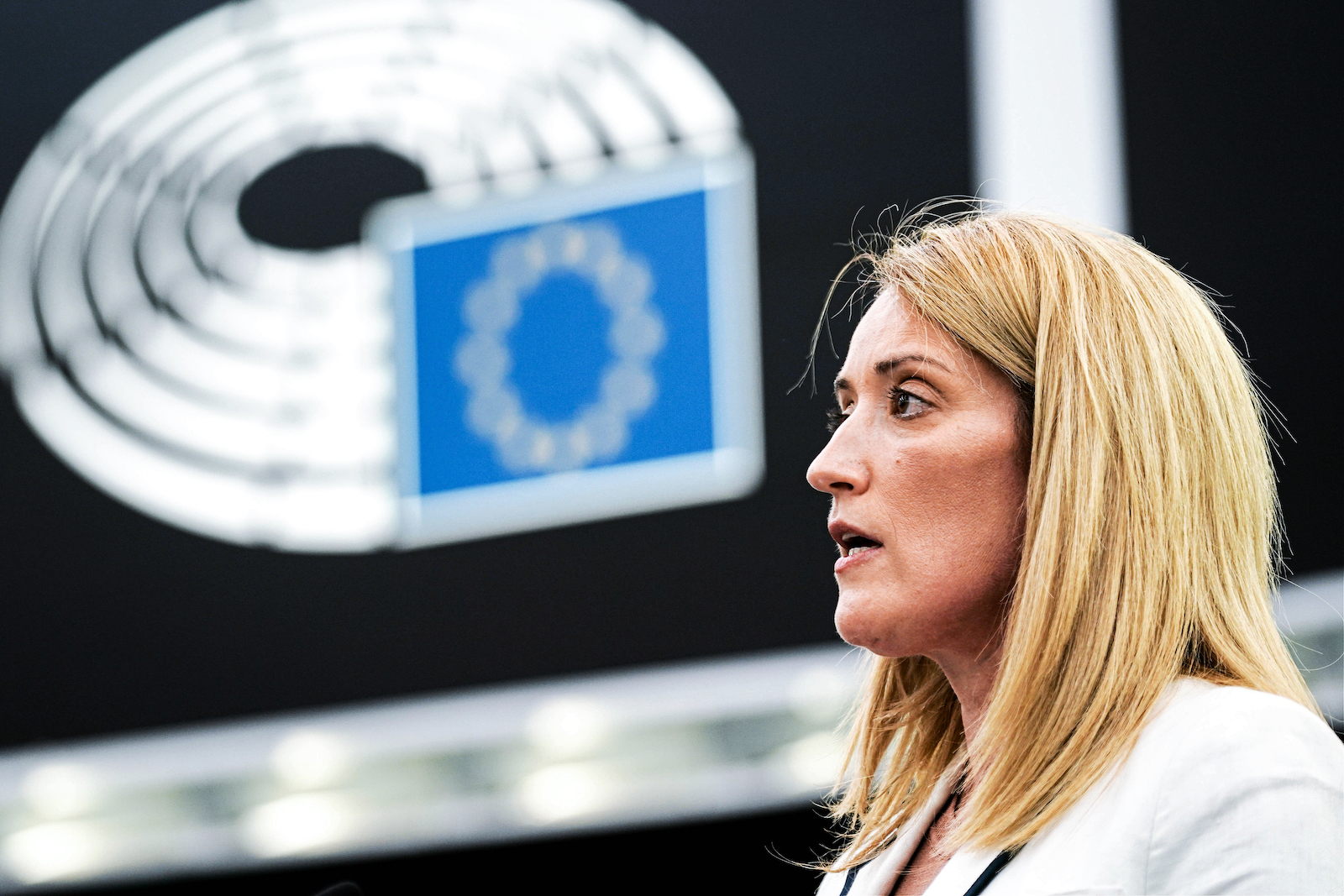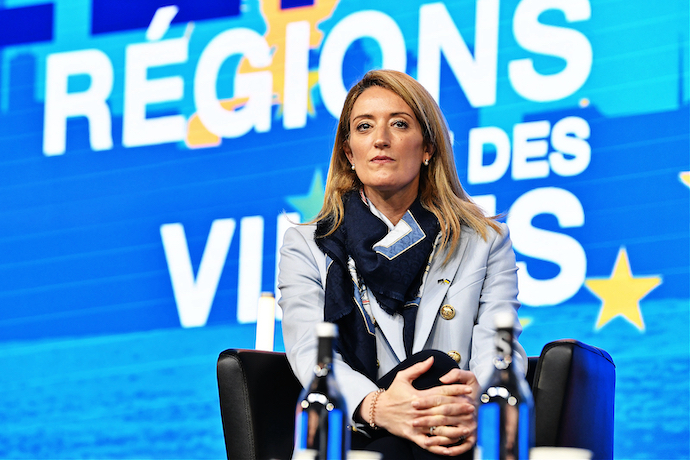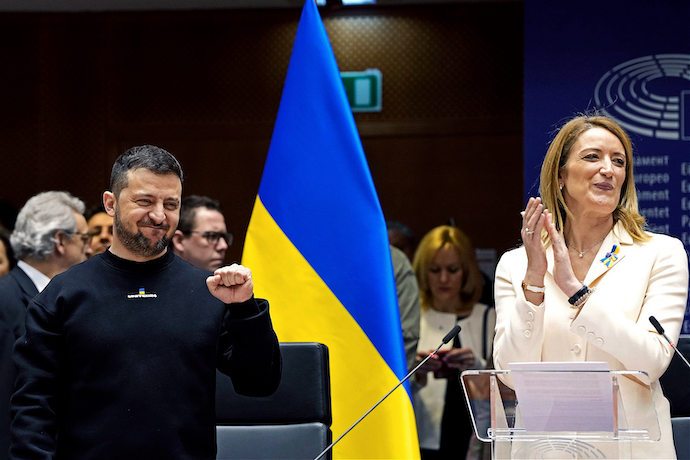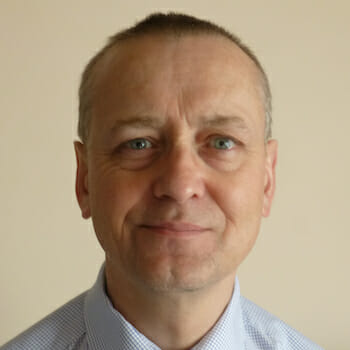
Brussels Gears Up for its ‘Most Important’ Elections Yet
“World peace cannot be safeguarded without the making of creative efforts proportionate to the dangers which threaten it.” – Schuman Declaration, May 1950
Robert Schuman is one of the “founding fathers” of the European Union and for Roberta Metsola, one of the bloc’s current leaders, that mantra still rings true today.
Metsola is President of the European Parliament which is already busy gearing up for a huge date on its calendar: next year’s European Parliament elections.
I spoke with Roberta Metsola at length about the 2024 poll and the current challenges facing the world order.
This would not be the EU, though, without first also doffing its cap to history. Every year, the EU celebrates “Europe Day” which it grandly calls a “day of symbolism, of history and of the future.”
In May, Metsola, in a speech in Germany to mark Europe Day, conceded that the European Union “is not perfect.” Adding, “I know many share our frustrations with some of our processes.”

“But” she went on, “the fundamental pillars of hope, of possibility, of freedom, democracy, and the rule of law, make this political project unique. We cannot take what we stand for, and we have achieved – and what we must achieve still – for granted. We must keep evolving.”
European Parliament elections are held every five years and 2024 promises to be the most important yet.
The EU has been partly transfixed in recent years by the growing popularity of so-called populist politicians and the attendant rise of what has become known as “populism” in European politics.
The pandemic together with the ongoing war in Ukraine and, more recently, an economic crisis has led some to question, not for the first time, the continued usefulness of the EU.
Populist politicians have exploited public resentment about a range of issues, ranging from the cost of living to immigration, and formed anti-European parties and movements.
The right, in recent years, has unleashed a wave of populism and nationalist identity politics that threaten the very cohesion and future of the EU.
So, this seems an opportune moment to quiz one of its political leaders on whether the EU really is still fit for purpose.
As you’d expect from a Europhile, the answer is yes, but it is also a guarded yes.
Metsola, elected to the post in January 2022, says that one of her priorities is to “explain the role of the Parliament better” and to “reach as many people as possible to show that the European project is alive and running.”
The Maltese politician goes on, “I want people to re-capture the sense of purpose, of enthusiasm for Europe. To create a Europe that is a little bit safer, better, and a little bit fairer.”
The Maltese-born Metsola says she is aware that the European Union “is not perfect” and that it is “continuously evolving.”
“The world,” she says, “is changing and we must change with it.”
“We need reform. We cannot be afraid of change. We must embrace it as we keep listening, keep explaining, and keep delivering.”

Fears of yet more electoral gains for “populist” parties in Europe have been put on hold, for now at least, after the recent Spanish elections.
The Vox party shrank its share of seats in parliament following the national elections and it seems that the prospect of a radical right-wing party entering government was a step too far for many Spaniards.
For Metsola, a key objective now is to get as many people as possible out to vote in June which will see a record number of 716 MEPs elected from 27 member states.
Metsola says voting in the European elections means ensuring that Europe “remains focused on striving for justice, for equality of opportunity and real democracy.”
“It also means upholding the democratic voice of citizens and shaping the future of Europe.”
All member states will play a “crucial role” in ensuring that Parliament “delivers on its promises” and to make sure that the EU “remains not only the world’s largest trading block but also a superpower of values.”
The 44-year-old centre-right politician believes the EU “shares with the U.S. the same values, dreams, and promise for a better and safer future.”
Turning to current events in Ukraine and elsewhere, Metsola urges the EU to continue working together to “counter the influence of regimes like Russia and China,” regardless of what the Parliament will look like next year.
“We cannot rely on China, with a value set very different to ours, or on an aggressive, expansionist Russia. Our way is different, and I think it is worth defending and worth convincing others of that. Ultimately, we need to rely on our friends and not our foes,” Metsola warns.
The EU elections are hailed by Brussels as the “largest democratic exercise in Europe” and the Parliament prides itself on being the only EU institution whose members are elected by the public.
The last election in 2019 saw a record voter turnout, something many put down largely to a massive investment in a glitzy and highly effective communications campaign.
Metsola and many others are hoping for the same strategy – and the messaging behind it – will result in similar voter participation in next year’s poll.
Her message is: “I encourage everyone to recapture the sense of hope and possibility that the European Union offers. To vote. Do not let someone else choose for you.”

